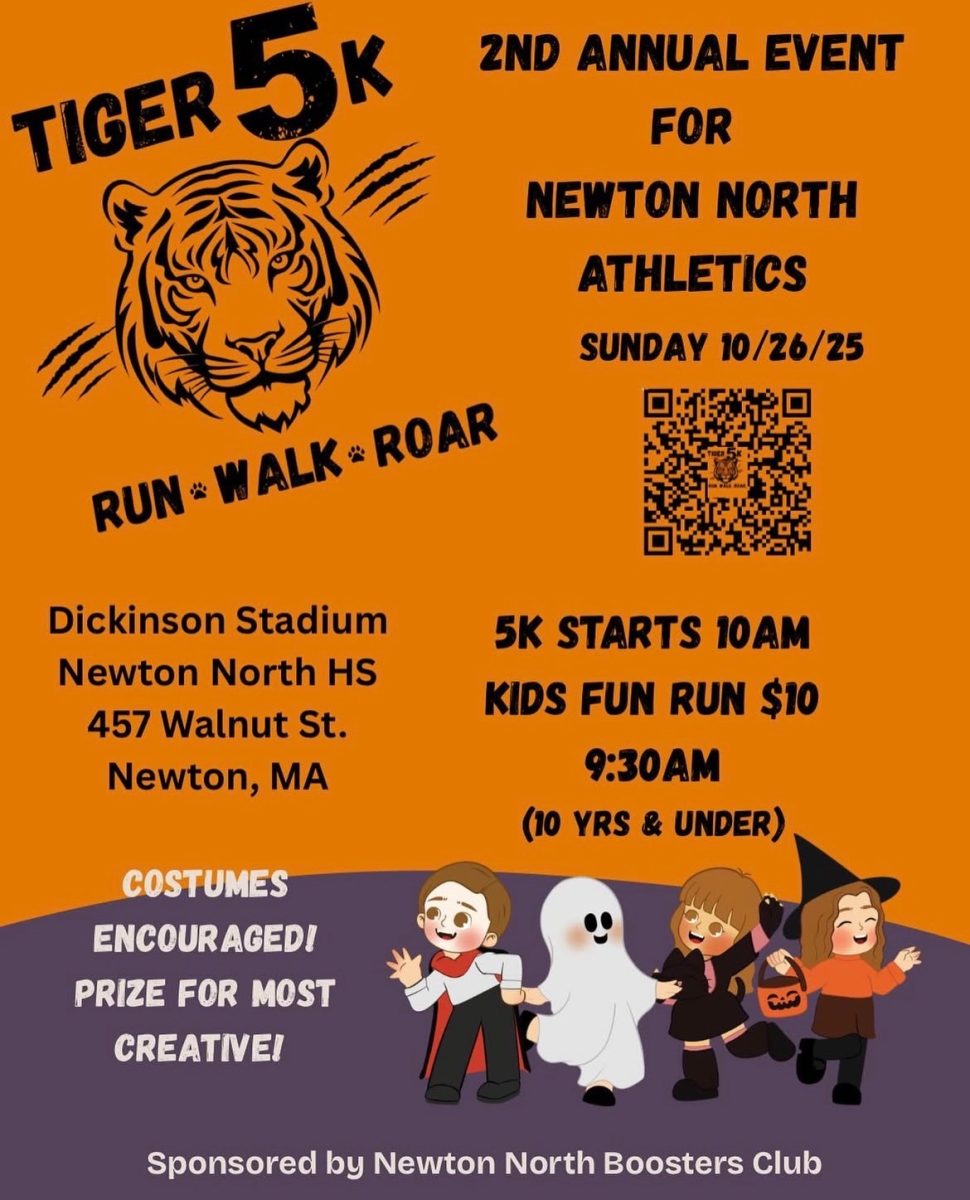At North, students aren’t just studying engines, blueprints, or lesson plans — they’re fixing cars, designing layouts, and teaching children through the Career and Technical Education (CTE) program, which connects classroom learning to real workplaces across the city. Through cooperative education (co-ops), internships, and work-study jobs, students learn skills that stretch far beyond the walls of North–though scheduling conflicts, transportation issues, and limited opportunities can sometimes make these jobs harder to access.
North’s seven CTE programs–automotive, carpentry, culinary arts, drafting, early education and care, graphic communications, and TV media arts–provide varying degrees of work opportunities both inside and outside of school. According to CTE counselor Tuuli McElroy, “Our seniors who are in CTE who are Major III students are eligible for co-op in the second half of their senior year as long as they meet the requirements.”
According to CTE program director Kathleen Duff, all CTE programs are eligible for co-ops, however, challenges with scheduling can limit students’ ability to participate.
McElroy added, “The co-op has very specific rules that are set by the state. It has to be tied to the CTE program, and it has to be supervised by a professional in that field.” She said that students often seek out co-ops if they or their teachers have personal connections to outside companies.
Duff emphasized that co-ops are selective: students must be in Major III, maintain good attendance and academic standing, and demonstrate strong behavior in class. Students earn at least minimum wage, but do not receive credit.
In contrast, internships and work studies provide more flexibility since they are not tied to the CTE program and therefore do not have rules set by the state, according to McElroy. Work studies can also take place inside the school, whereas co-ops cannot. Pay varies by program: work studies are usually paid by the district at a fixed hourly rate, sometimes below minimum wage, while internships are often unpaid.
Automotive
Senior Vinnie Arcuri, an automotive Major II, said, “I think the CTE program is probably one of the best things the school offers. It teaches basic life skills a lot of people don’t know anymore.”
Arcuri explained that automotive connects directly to his passion for landscaping. Since he was 11, he has been doing planting and construction work for his father’s landscaping business, work he believes is made easier by his technical training from automotive.
Automotive teacher Mark Lutz said that his students find it difficult to participate in co-ops during school hours due to North’s 9 a.m. start time. Still, Lutz added, that many students, like Arcuri, manage to find outside work after school or over the summer.
Carpentry
Just down the hall from automotive, Carpentry students face similar difficulties with attending co-ops, according to Carpentry teacher Garrett Tingle.
“Many of the jobs are out of the city, and students need to have their own transportation,” Tingle said. “Projects are transient, meaning they move from home to home. It’s not like going to an office each day.”
Carpentry teaching assistant Mike Lyons ’22 encouraged students to pursue co-ops whenever possible. “I tell students all the time I wish I did co-ops,” Lyons said. “Getting out on the job site and doing work is a very good experience.”
Culinary Arts
The aromas of freshly baked scones and sizzling bacon that fill the Tiger’s Loft Bistro in the mornings are thanks to Major II and III culinary students participating in work studies. From 7:15 a.m. to 8:45 a.m. Wednesdays through Fridays, they provide North’s community with fresh breakfast options.
According to senior Duncan Yens, a Major III student, “Bistro in the Morning” is a “very accessible way to work an hour before school,” especially for students who do not have time outside of school to acquire a job.
“It’s a great opportunity not just for the students here to learn, but for the students and the staff to have a place to get something to eat before school hours,” culinary arts teacher Christopher DeRocher said.
According to DeRocher, students participating in work studies make below minimum wage.
Drafting
Like many other technical disciplines, drafting students face challenges with co-op scheduling. According to teacher Andrea Shurtleff, “Ideally a co-op would be available for a Major III second semester, and they would have a work opportunity to be at an office for a, b, and c-block.” But North’s schedule often makes this difficult.
As a result, many drafting students pursue summer internships through family, friends, or neighbors, typically at architecture or engineering companies. Junior Leo DiMattia said the portfolio he created during his drafting class helped him secure such an internship.
“I was actually able to work on projects and not just watch,” DiMattia said. “The work experience that I got from it is something that I will never forget, and I think it will help me a lot with a career path and college.” He added that his prior experience with software in class made it easier to adapt to professional work.
Early Education and Care
The laughter of children at recess near Tiger Drive and the soft chatter of circle time outside North’s Plowshares classroom set the scene for Early Education and Care. Major III students in the program step into Newton’s elementary schools during the second semester of their senior year, working at Burr, Cabot, Franklin, Horace Mann, and Peirce. They also find placements at preschools such as Bright Horizons and the Newton Early Childhood Program.
Senior Malia Thompson-Leong, an early education and care Major III student who plans to do co-ops during the second semester, said, “I myself want to go into kindergarten teaching, so I’m really glad to have this opportunity to work on lesson planning and building relationships within the community”
According to teacher Michelle Ramsdell, students assist with teachers and teaching teams, performing many of the responsibilities of an educator. Major III students spend six to seven hours a week at their placements, replacing their class time during a, b, and c-blocks.
Graphic Communications
The hum of printers and the bustle of students editing posters spill out from the Graphic Communications lab onto Main Street. Inside, graphics students balance school-based work studies, summer internships, and occasional co-ops with local businesses.
According to teacher Tom Donnellan, students who participate in work studies are paid by the school district at the standard hourly rate below minimum wage. Students also have opportunities to intern at North’s production center over the summer, or co-op at area shops, sometimes earning above minimum wage.
Senior Matt Mendecina, a graphics Major II, participated in North’s summer internship program for two years. “The CTE program is really great at preparing you for skills that will be useful in any career path you choose to go in when it comes to dedication, timeliness, working in a group, and being organized,” Mendecina said. He added that he worked seven-hour days during his internship.
“When they go out into a shop, it’s a great experience, obviously it’s outside of their comfort zone,” Donnellan said. “It’s not in a school.”
TV Media Arts
Through the glass window panes of the TV media classroom, students can be seen livestreaming sports, theater, music, and schoolwide events. According to teacher Amanda Mazzola, students are paid for their coverage, with wages varying by broadcast.
Unlike other CTE programs, TV media students rarely participate in co-ops because of the lack of high school broadcasting jobs. Still, students value real-world exposure.
Junior Levi Rosenberg-Van Gameren, a Major II student and livestream production coordinator, said, “If broadcasting is something you want to go into when you grow up, you get a lot of insight on how it works in the industry.”
Sports games are streamed on NewTV, Newton’s local news station, funded by a grant, while theater performances are streamed on the Theatre Ink website with support from the theater department.
Theatre Ink
From sewing sequins to hammering stage sets, Theatre Ink—an extracurricular rather than a CTE course–offers paid work-study opportunities in costuming, lighting, and sound.
Senior Lucy Yang-Schmidt, a costuming team member, said the program is a major after-school commitment, extending into weekends and breaks. “I think it’s good for people who don’t have jobs, like minors who haven’t started working yet,” she said.
Students earn below minimum wage and can make a maximum of $50 per week. According to director Adam Brown, “Work studies are for students beginning in their junior year who are completely active in theater. It’s mostly students who work on the technical crews and stage manage and do student producing who are eligible to get paid for their work.”















































